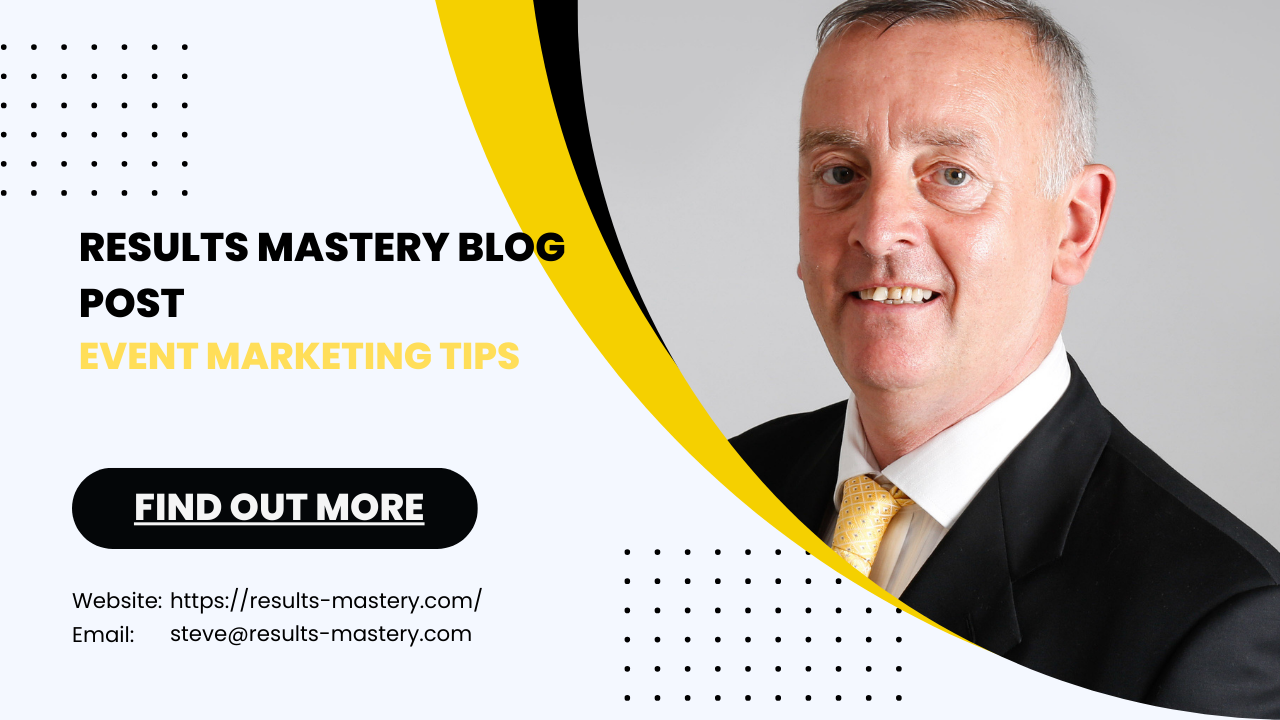
- May 31, 2024
- stevemills
- 0
Event marketing tips are essential in the digital age. The power of event marketing to captivate audiences, engage potential customers, and boost sales cannot be overstated. With the shift towards online platforms, hosting events has become not only more accessible but also presents a unique set of opportunities and challenges. The successful execution of an online event hinges on meticulous planning, strategic marketing, and active engagement, making it an indispensable tool for businesses aiming to expand their reach. As the landscape of digital interaction continues to evolve, so too does the importance of leveraging these virtual gatherings to create memorable experiences that drive business objectives.
This article delves into the core aspects of executing impactful online events, starting from the planning phase to post-event follow-up. It highlights effective marketing strategies designed to maximize attendance, including the integration of blogging and other content creation efforts to amplify event visibility. Moreover, it offers insights into engaging your audience during the event to ensure a captivating and interactive experience, ultimately leading to a successful outcome. Through a combination of expert advice and practical tips, readers will gain valuable knowledge on how to navigate the complexities of event marketing in the digital realm effectively.
Planning Your Online Event
Identifying Your Goals
When planning an online event, it’s crucial to start by defining clear and measurable goals. This foundational step ensures that every aspect of the event aligns with your overall objectives. Consider what you aim to achieve: Is it brand awareness, lead generation, customer engagement, or educational content delivery? Setting SMART goals—specific, measurable, achievable, relevant, and time-bound—provides a clear roadmap for your event’s success.
Deciding on a Format
Once your goals are set, the next step is to decide the format of your event. Whether it’s a webinar, workshop, or a hybrid event, the format should cater to the needs of your audience and the nature of your content. For instance, interactive sessions like Q&A or panel discussions might require a platform with robust engagement tools. On the other hand, informational webinars might focus more on broadcast quality and content delivery.
Choosing the Right Platform
Selecting the appropriate platform is critical for the success of your online event. It should not only support the event’s format but also enhance participant engagement. Look for platforms that offer seamless integration with other tools, such as CRM systems, to manage and analyze attendee data effectively. Additionally, consider platforms that provide essential features like live polling, chat options, and Q&A sessions to foster interaction and maintain audience interest throughout the event.
By meticulously planning each of these aspects, you set the stage for a successful and impactful online event.
Marketing Strategies to Boost Attendance
Leveraging Social Media
Social media platforms such as Facebook, Twitter, and Instagram are crucial for promoting events and driving attendance. By creating engaging content, running targeted ads, and encouraging attendees to share the event with their networks, organisers can significantly increase visibility. Additionally, using event-specific hashtags can help unify conversations and boost engagement, making the event more accessible to a broader audience.
Email Campaigns
Email marketing remains a powerful tool for reaching potential attendees. Organisers should craft compelling email messages, offer early-bird discounts, and segment their email lists to personalise outreach. This strategy not only enhances engagement but also increases the likelihood of converting recipients into event attendees. Pre-event emails can generate excitement and anticipation, while post-event emails can foster ongoing engagement and lead to future participation.
Collaborations and Partnerships
Forming partnerships with complementary organisations, influencers, or industry leaders can open up new audience channels and enhance event credibility. Collaborative efforts such as co-hosting events, sharing resources, and engaging in joint promotional activities can extend the reach of event marketing efforts significantly. These partnerships are particularly effective in aligning with brands that share a similar target audience or mission, thereby maximising the impact of the promotional efforts.
To find out more from me, then subscribe to my stuff! See the links below:
RESULTS Mastery
Steve Mills Business Growth Advisor YouTube Channel – https://www.youtube.com/channel/UC6U1XU5YuFRk8TECjWBLUNA/videos?view_as=subscriber
The RESULTS Podcast – On iTunes – https://podcasts.apple.com/us/podcast/the-steve-mills-results-podcast/id1468660470?uo=4
The Steve Mills RESULTS Mastery University – https://steve-mills.com/the-results-mastery-university/
RESULTS Mastery Programme – https://steve-mills.com/results-mastery/
Recommended websites – https://steve-mills.com/recommended-websites/
Connect to Steve on LinkedIn – https://www.linkedin.com/in/marketingadvice/
To give me a recommendation on Trustpilot click here
To recommend me on Google click here
Effective tips include thorough audience research, strategic content planning, engaging promotion, and utilizing interactive tools to boost audience participation and drive sales.
Online events can boost sales by creating a direct channel to engage with potential customers, demonstrating product value, and building brand trust, which can lead to higher conversions.
Common mistakes include lack of promotion, failing to engage the audience, technical issues, and not following up with attendees post-event to capitalize on generated leads.
